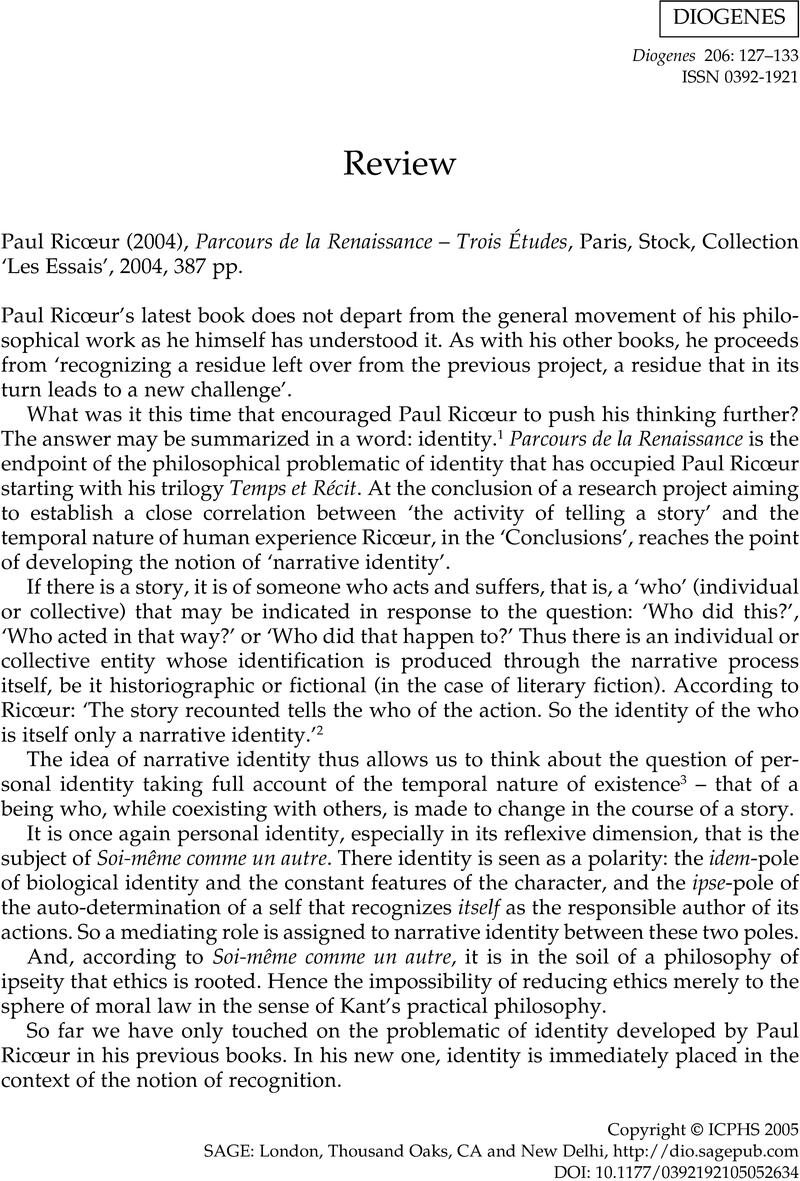No CrossRef data available.
Published online by Cambridge University Press: 28 February 2024

1. On this topic see my text ‘Narrative Identity and Ipseity by Paul Ricœur (from Ricœur’s Time and Narrative to Oneself as an Other)’, posted on the internet: http://www.onlineoriginals.com, which is the translation of a paper given in Portuguese to the International Conference held in 1993 in Rio de Janeiro (Brazil) on the occasion of Paul Ricœur’s 80th birthday.
2. Paul Ricœur (1987), Temps et Récit, vol. III Le Temps raconté, Paris: Seuil, p. 355.
3. See in Soi-même comme un autre (Paris: Seuil, 1990) the chapter entitled ‘L’identité personnelle et identité narrative’, where Ricœur states that personal identity ‘can only be precisely articulated in the temporal dimension of human existence’.
4. ‘How does one move from the regime of the rule-bound polysemy of the words of natural language to the formation of philosophèmes worthy of appearing in a theory of reconnaissance?’ Ricœur asks himself (p. 32). And he mentions the dislocation that philosophical problematization causes compared with the order of the dictionary, in which it has already noted the gaps between one meaning and another.
5. Parcours de la Reconnaissance, op. cit., p. 129.
6. See Jean Nabert (1962), Eléments pour une éthique, introduced by Paul Ricœur, Paris: Aubier/Montaigne.
7. Paul Ricœur (2001), Mémoire, histoire, oubli, Paris: Seuil.
8. Nietzsche’s suspicion about the unity of the self and so its identity is also present in Ricœur’s analyses related to memory and promise.
9. See his paper (2004), ‘La promesse d’avant la promesse’ in the collection La Philosophie au risque de la promesse, edited by Marc Crepon and Marc de Launay, Paris: Bayard.
10. I refer the reader to the book’s dedication: ‘To Frans Vansina, minor brother, my oldest friend.’